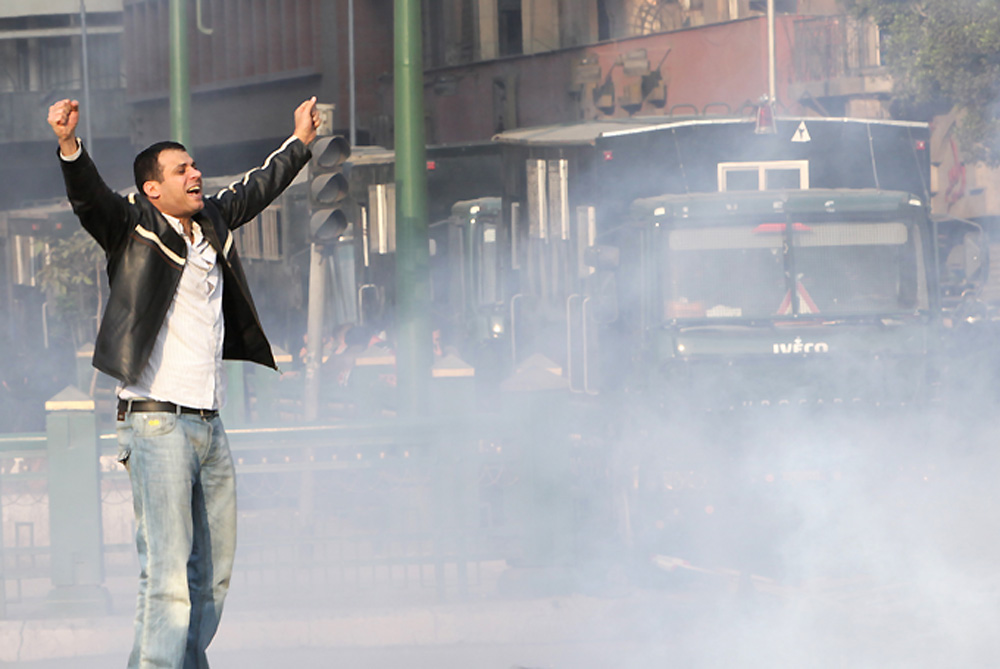
It's now pretty clear that the Egyptian people are going to succeed in freeing themselves entirely without the help of the U.S. Today I'm not worrying as much about whether their courage and nobility will enable them to defend their magnificent, popular revolution as I am about the consequences of its brilliant success for the U.S. Their achievement is one which I fully expect to be repeated elsewhere in the Middle East - and beyond - one in which my government, it will be remembered, had no part, offered no help or encouragement, and in fact was only a hindrance.
Is Obama nuts? Who's the terrorist now?
It's as if the U. S. government was not satisfied with the degree of disgust with which much of the world holds its imperial presence, military adventures and reactionary foreign policy, and now President Obama has decided to further inflame the hatred by giving people in the Arab and Muslim world, and elsewhere, even more reason for their distrust, confirming the worst suspicions of some and making new enemies of others.
For us in the U.S., and for the world, the danger of this policy, whether authored by stupidity or narrow national calculation, should be obvious. Not only will we be hated and reviled, but the threats, both real and perceived, which since 9/11 have torn our political economic and social fabric apart, may now prove fatal to everything we ever thought we stood for. The nation which once appeared as a beacon of freedom for people around the world is now on the losing end of history, and those who have inherited so much from its founders can expect to find themselves in history's dustbin.
Read Nicholas Kristof, writing now from the streets of Cairo:
Yet one thing nags at me. These pro-democracy protesters say overwhelmingly that America is on the side of President Mubarak and not with them. They feel that way partly because American policy statements seem so nervous, so carefully calculated -- and partly because these protesters were attacked with tear gas shells marked "made in U.S.A."
The upshot is that this pro-democracy movement, full of courage and idealism and speaking the language of 1776, wasn't inspired by us. No, the Egyptians said they feel inspired by Tunisia -- and a bit stymied by America.
Everywhere I go, Egyptians insist to me that Americans shouldn't perceive their movement as a threat. And I find it sad that Egyptians are lecturing Americans on the virtues of democracy.
"We need your support," pleaded Dr. Mahmood Hussein, a physiology professor. "We need freedom."
Ahmed Muhammad, a medical student, told me: "Egyptian people will not forget what Obama does today. If he supports the Egyptian dictator, the Egyptian people will never forget that. Not for 30 years."
I don't think Americans can be reminded enough that the events in Egypt are not about them, but we've been so invested in the dictatorial regime now being leveled by a popular, nonpartisan national revolt that we cannot claim we had nothing to do with it in the past, cannot pretend we're not involved in what's happening now, and cannot expect to be isolated from its consequences.
More from Kristof, in a post done today:
I also fear that this choreography - sending former diplomat Frank Wisner (whom I admire) to get Mubarak to say he won't run for reelection -- will further harm America's image. This will come across in Egypt as collusion between Obama and Mubarak to distract the public with a half step; it will be interpreted as dissing the democracy movement once again. This will feed the narrative that it's the United States that calls the shots in the Mubarak regime, and that it's the United States that is trying to outmaneuver the democracy movement. In effect, we have confirmed to a suspicious Egyptian public that we are in bed with Mubarak and trying to perpetuate his regime (even without him at the top) in defiance of a popular democratic movement.
[image from Al Jazeera (EPA)]